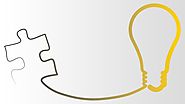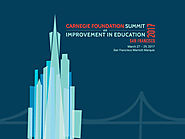-
About
- About Listly
- Community & Support
- Howto
- Chrome Extension
- Bookmarklet
- WordPress Plugin
- Listly Premium
- Privacy
- Terms
- DMCA Copyright
- © 2010-2025 Boomy Labs

 Erika Yigzaw
Erika Yigzaw
Listly by Erika Yigzaw

The tenth annual survey, a collaborative effort between the Babson Survey Research Group and the College Board, is the leading barometer of online learning in the United States. Based on responses from over 2,800 academic leaders, the complete survey report, "Changing Course: Ten Years of Tracking Online Education in the United States" can be downloaded here.
Acetaminophen in Pregnancy and Child's ADHD Risk Risk increases with longer use, researchers say; experts caution the finding needs verification WebMD News from HealthDay By Dennis Thompson HealthDay Reporter MONDAY, Feb. 24, 2014 (HealthDay News) -- Expectant mothers suffering from fever or headache may face a new dilemma when they open the medicine cabinet.

Dr. Boettcher is an expert in distance learning and education.
Included are writings and other resources for distance learning.

The Quality Matters Higher Education Rubric, Fifth Edition, 2014 is a set of 8 General Standards and 43 Specific Review Standards used to evaluate the design of online and blended courses. The Rubric is complete with Annotations that explain the application of the Standards and the relationship among them. A scoring system and set of online tools facilitate the review by a team of Peer Reviewers.Unique to the Rubric is the concept of alignment. This occurs when critical course components - Learning Objectives (2), Assessment and Measurement (3), Instructional Materials (4), Course Activities and Learner Interaction (5), and Course Technology (6) - work together to ensure students achieve desired learning outcomes. Specific Standards included in Alignment are indicated in the Rubric Annotations.

It’s been two years since a New York Times article declared the “year of the MOOC” —short for “massive open online courses.” Now, for the first time, researchers have carried out a detailed study that shows that these classes really can teach at least as effectively as traditional classroom courses — and they found that this is true regardless of how much preparation and knowledge students start out with. The findings have just been published in the International Review of Research in Open and Distance Learning, in a paper by David Pritchard, MIT’s Cecil and Ida Green Professor of Physics, along with three other researchers at MIT and one each from Harvard University and China’s Tsinghua University.

What eLearning Professionals should know about Socratic Questions in eLearning? Check the 6 Types of Socratic Questions & 5 Tips To Use Socratic Questions.

Wondering what you should know about the Transformative Learning Theory? Read this to learn all you should know about the Transformative Learning Theory.

The fourth annual Carnegie Foundation Summit on Improvement in Education is scheduled for March 27-29, 2017. Registration is now open!

A new report on digital literacy from the New Media Consortium examines the current landscape of digital literacy initiatives, revealing a need for consensus on definitions and best practices in higher education.

What eLearning Professionals Should Know About Gagné's 9 Events Of Instruction In eLearning? How To Apply Gagné's 9 Events Of Instruction In eLearning!

FutureEd, a new education policy think tank, has launched today, offering online news, analysis and research that’s independent, nonpartisan and “solution-oriented.”
